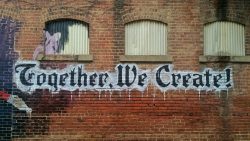Here are two conversations for examining unconscious biases, with the intent to bring awareness to them and to provide the opportunity to consciously choose to address the bias to allow inclusive behaviour.
Conversation for Making My Unconscious Bias Conscious
In the story of unconscious bias in the previous article, this is the underlying process I used to debrief the situation, with additional questions in parentheses.
O. What did I just observe?
What were the things that just happened?
(What words did I hear or read just now?)
R. What was my internal reaction?
What was my physical reaction?
What images came to mind?
What previous experiences, stories, events am I reminded of?
I. What is the significance of this situation?
Which of these internal reactions are relevant in this situation?
Why did this happen in this way?
How does this fit with my values?
What are the implications?
D. What do I do to respond?
How do I ethically respond in accordance with my values?
What do I do to rectify my behaviour?
How do I behave in the future?
Conversation with Another Person to Uncover Unconscious Bias
“We think we are simply asking people to change [their behaviour] when we might actually be challenging the way they see themselves. We might be challenging their very sense of identity. And when we feel our identity is being challenged or threatened, psychological research tells us that we respond as if our very life is being threatened. Instead of being open to change, we dig in our heels and overtly or covertly resist being changed. We become more attached to our role or our identity”. from Worldview Intelligence
This conversation must be asked from a place of curiosity and openness, rather than judgement.
O. What did we just observe?
What were the things that just happened?
R. What was your internal reaction?
What was your physical reaction?
What images came to mind?
What previous experiences, stories, events are you reminded of?
I. What is the significance of this situation?
Which of these internal reactions are relevant in this situation?
Why did this happen in this way?
How does this fit with your values?
What are the implications of this situation – for you, for others?
D. What can you do to respond?
How would you ethically respond in accordance with your values?
How might you behave in the future?







